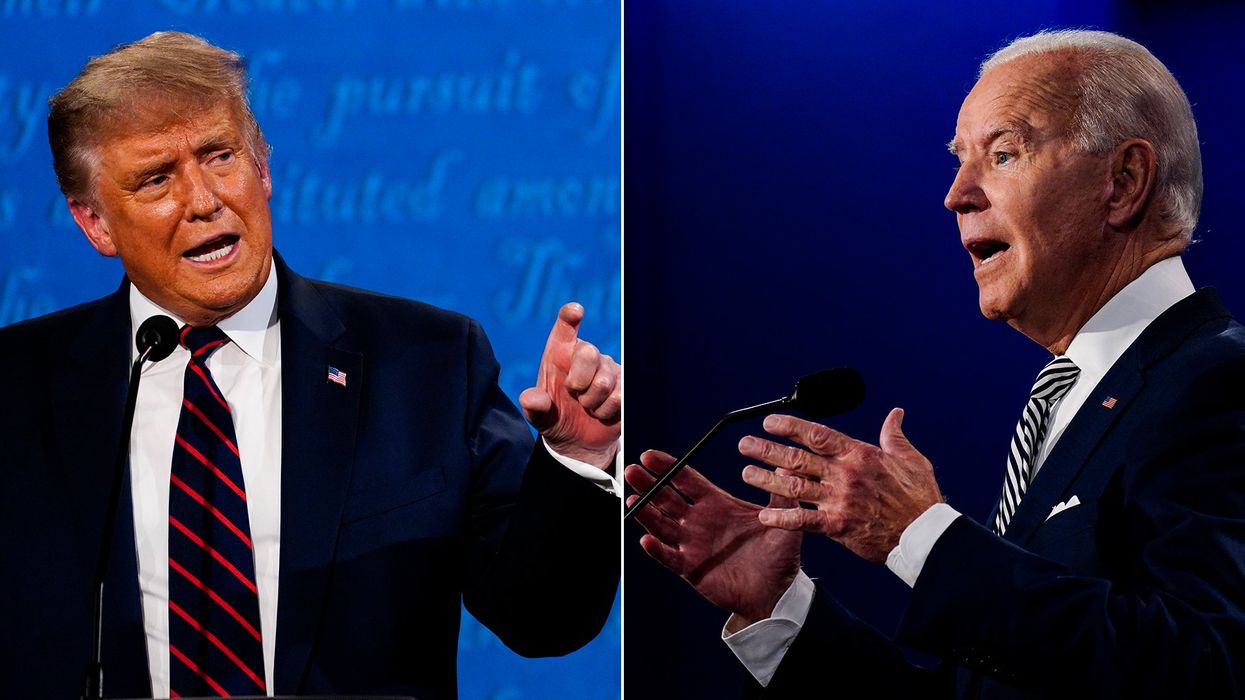Corbin is professor emeritus of marketing at the University of Northern Iowa.
This is part one of a two-part series to help voters compare and contrast Joe Biden and Donald Trump. Part one is a meta compare and contrast analysis of five major issues in hopes the review may assist voters come Nov. 5. The second part will address 13 additional topics.
An early-April poll focused on adults’ perspective as to how Joe Biden’s and Donald Trump’s respective presidencies have hurt America. Two issues surrounding Biden’s term are of concern: the cost of living and immigration. Five issues about Trump’s presidency are still perplexing to voters: election security, voting rights, relations with foreign countries, abortion laws and climate change.
The 2024 choice for presidency — and issues of concern — couldn’t be more different.
The opinions of two prominent and revered writers for the conservative-oriented Wall Street Journal are referenced below. First is Alan Blinder, professor of economics and public affairs at Princeton and former vice chairman of the Federal Reserve. The other is William Galston, who writes the WSJ’s weekly “Politics and Issues” column. He is an expert on domestic policy, political campaigns and elections.
Immigration: On March 27, Blinder wrote: “Mr. Trump directed his followers in Congress to scuttle a `compromise’ bill to bolster the southern border — a bill Mr. Biden and many Democrats had already accepted, partially so that they could move on to other pressing matters regarding Ukraine, Israel, Taiwan and the budget. Mr. Trump, by contrast, preferred to let the border crisis fester so that he could use it as a campaign issue.”
Trump’s zero-tolerance policy separated thousands of migrant children from their parents, an action opposed by two-thirds of Americans. Biden ended that policy on the 13th day of his presidency. It’s ironic Trump believes immigrants are “poisoning the blood” of our country, while he and 97.1 percent of Americans are here due to immigration.
Abortion: Biden, a devout Catholic who has supported women’s rights for decades, has vowed he’ll restore the 1973 Roe v. Wade landmark decision if Democrats get control of Congress. Trump, a former pro-choice advocate, proudly boasts he was “able to terminate Roe v. Wade” and “honored” to do so by appointing three conservatives to the Supreme Court.
Trump’s most recent pronouncement that state legislatures and courts should control reproductive rights means – according to Republican Voters Against Trump – “33,360,789 women now live in a state where abortion is banned without exceptions for rape or incest.” A Gallup survey found American support of legal abortion access remains strong; 61 percent say overturning Roe v. Wade was a “bad thing.”
North Atlantic Treaty Organization: Seventy-eight percent of Americans remain committed to the NATO alliance. Galston wrote: “Donald Trump has made clear that he has no intention of honoring the commitment the U.S. made when it signed the NATO charter (April 4, 1949), including the defense of other members who come under attack. For Mr. Biden, NATO is a solemn compact based on common interest and shared values. For Mr. Trump, it’s a financial transaction.”
Ukraine: Seventy-four percent of Americans view the war between Russia and Ukraine as important to U.S. national interests. Galston made his thoughts on the conflict quite clear: “The U.S. has worked for three quarters of a century under presidents of both parties to help Europe remain safe and free. Now one ignorant, amoral demagogue has persuaded a majority of one party that this effort is a mistake. A great tragedy is in the making unless leaders in both parties can find a way to thwart him.”
Israel-Hamas war: According to an April 5 PBS report, “Israel’s handling of the war in Gaza has become a major U.S. election issue. Both President Biden and former President Trump have expressed concern with the humanitarian situation and Israel’s international standing after an airstrike killed seven aid workers.” Biden, Trump, the Democratic Party and the GOP are miffed as to what to do since, according to the Pew Research Center, “Americans’ views about the Israel-Hamas war differ widely by age, as do their perceptions about discrimination against Jewish, Muslim and Arab people in the United States.”
Part two will focus on 13 topics including education, economy, trade policy, tax policy, Jan. 6 insurrectionists, infrastructure, democracy-authoritarianism and climate change.




















Trump & Hegseth gave Mark Kelly a huge 2028 gift